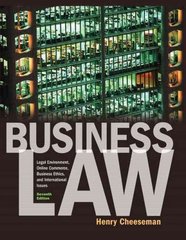



2. Poverty and Inequality Consider the following income distribution for a 10-person economy with a poverty line of $11. Fill in the missing information, rounding to 1 decimal place where necessary: Person Income ($) % Cumulative % Cumulative Population Income IN- 2 10 1.5 20 3.8 5 30 7. 6 40 12.0 10 50 19.5 12 60 28.6 15 70 39.8 18 53.4 22 69.9 10 40 100 100.0 a. Compute the following measures of poverty and inequality for this economy. Show your work in the boxes below the table. 1 . Headcount Index 0.5 ii. Income Gap Ratio 0.5 ill. FGT1 0.3 iv. FGT2 0.2 i) HCI = poor people / total population = 5/10 = 0.5 ii) IGR = [(z - y)/(2*HC) = ((11-2) + (11-3) + (11-5) + (11-6) + (11-10))/(11*5) = 29/55 ili) FGT1 = (1/N)*2((z-yi)/z) = (1/10)*((11-2) + (11-3) + (11-5) + (11-6) + (11-10))/11 =29/110 IV) FGT2 = (1/N)*E((2-yi)/z)^2 = (1/10)*((11-2)-2 + (11-3)~2 + (11-5)-2 + (11-6)-2 + (11-10)-2)/(11*2) = 207/1210b. The headcount index does not reflect the depth of poverty below the poverty line. 1 . Describe a specific income transfer within this economy, including which people and how much will be transferred, that demonstrates this limitation of the headcount index. 11. Compute the headcount index after the transfer. iii. Discuss how this transfer demonstrates the limitations of the headcount index as a measure of poverty. c. You have just been given $8 of foreign aid. Consider all measures of poverty and inequality we discussed in class. i. To reduce the share of the population in poverty, which measure would you target? 11. How would you distribute the aid to reduce the share of the population in poverty as much as possible? Be specific about how much would go to which individuals. What is the new value of the measure you identified in (i) after this aid distribution?iii. To reduce the severity of poverty in this economy, which measure would you target? iv . How would you distribute the aid to reduce the severity of poverty? Be specific about how much would go to which individuals. What is the new value of the measure you identified in (iii) after this aid distribution? V . To reduce the amount of society's resources (total money in the society) required to eliminate poverty, which measure would you target? vi. How would you distribute the aid to accomplish this goal? Be specific about how much would go to which individuals. What is the new value of the measure you identified in (v) after this aid distribution?b. The headcount index does not reflect the depth of poverty below the poverty line. (5 pts in total) NOTE: If you propose a transfer that changes the HCI(i.e. changes the number of people below the poverty line) in part ((), you could earn 0-2 points out of 5 in (b), depending on your arguments in (ii) and (iii); if you propose a progressive transfer that keeps HCI unchanged in part (i), you could earn 3-4 points out of 5 in (b), depending on your argument in (ii) and (iii), i . Suggest a specific income transfer within this economy that demonstrates this limitation of the headcount index: 2pts A transfer of 1 dollar from person 1 to person 5. (Other examples of regressive transfer or progressive transfer that keeps the number of people below the poverty line unchanged might also be valid) ii. Compute the headcount index after the transfer 1pt HCLafter = 3/5 = 0.6 iii. Discuss why this feature limits how useful the headcount index is as a measure of poverty. 2 pts 1i. After the income transfer from relatively poor to rich persons, we would expect to see an increase in poverty magnitude. However, the headcount index does not reflect this. That is, i.e. the headcount index does not reflect the depth of poverty below the poverty line.c. You have just been given $3 of foreign aid. Consider all measures of poverty and inequality we discussed in class. 1 . To reduce the share of the population in poverty, which measure would you target? 1 pt HCI. 1i . How would you distribute the aid to reduce the share of the population in poverty as much as possible? What is the measure you identified in (i) after this aid distribution? 2 pts - 1 for how distribute, 1 for measure I would give $2 to person 2 and $1 to person 3 so that only one person remains in poverty (HCI decreases to 1/5). iii. To address the absolute poorest in the society, which measure would you target? 1 Rt FGT2. iv . How would you distribute the aid to help the absolute poorest in the society as much as possible? What is the measure you identified in (iii) after this aid distribution? 2 pts I would give all $3 to person 1 or give $2 to person 1 and $1 to person 2 which gives me the same FGT2. Another answer is $2.5 to person 1 and 0.5 to person 1.To reduce the degree of inequality, which measure would you target? 1pt Gini index. vi. How would you distribute the aid to reduce the degree of inequality as much as possible? What is the measure you identified in (v) after this aid distribution? 2pt I would give all $3 to person 1 or give $2 to person 1 and $1 to person 2 which gives me roughly the same Gini. or $2.50 to person 1 and $0.50 to person 2
















